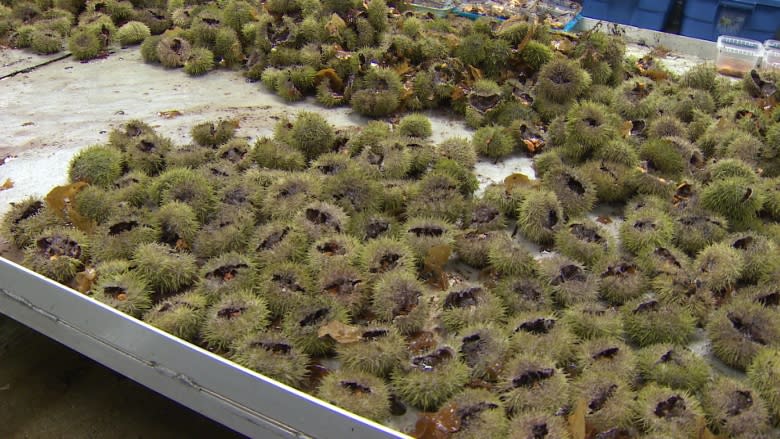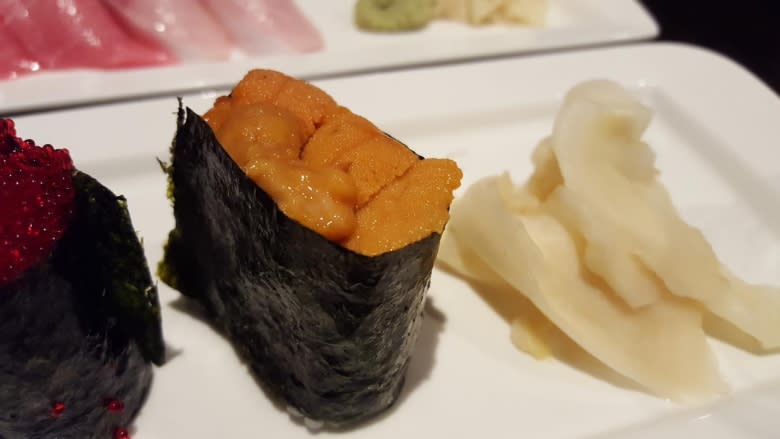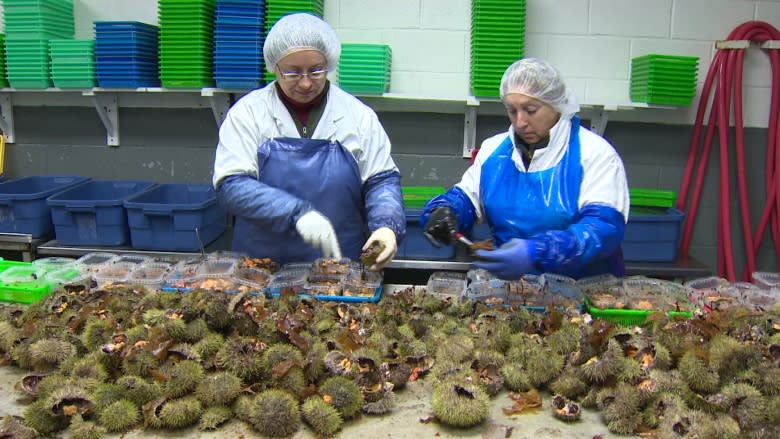Sea urchin harvester wants to sell to mainland buyers
A sea urchin harvester from Newtown, Bonavista Bay, says he's losing income because he's required to sell to local plants, who then profit by re-selling some of the harvest to mainland buyers.
Glenn Mouland told CBC Radio's The Broadcast that he started collecting sea urchins about five years ago, and now employs four divers and eight helpers.
He is paid 65 to 80 cents a pound, depending on the roe content, and said he could get double that if he could sell directly to buyers in New Brunswick.
"We've got three, well mainly two urchin buyers here and the government has got a rule in place that they process 50 per cent but they give them the option to send the other 50 per cent out, live," said Mouland.
"We can't ship out any, but the processor can ship out half. We've been fighting the government to change that ever since I've been at it."
Mouland said when he started, harvesters and divers could sell right off the wharf and were paid up to $1.50 a pound by buyers from Maine.
Striking a balance
One processor, Wood-Pick Enterprises in Wareham, said that system nearly ruined local plants.
Owner Andrew Akerman, who has been in business since 1995, told CBC News that competition from outside buyers and from Russians who were flooding the market forced him to lay off dozens of workers.
In 2014, the Newfoundland and Labrador government hired Pisces Consulting of Paradise to do a report on the sea urchin fishery.
The report concluded at the fishery was worth $2.7 million dollars annually to the provincial economy, with the potential to be $6.6 million.
It noted that processing plants had a glut of urchins in October, November and March and the consultants recommended they be allowed to ship out of province during those times.
"Though harvesters may perceive plants will extract more than a fair value for handling the product, in reality these plants are aligned so closely with Maine producers that prices should remain consistent regardless if shipped direct or handled through a plant," the report concluded.
It went on to say that a balance should be struck "that maximizes harvesting activity while providing meaningful employment to plant workers."
Mouland said the 50-50 option should be offered to harvesters as well as processors, or done away with.
"We could keep those [plant] jobs going and still ship out that 50 per cent. We'd like to ship out 100 per cent," he said.
"Them jobs is at our expense. We've got divers in the water....in the fall of the year, going into the winter and spring, you knows it's not very nice. I'm not going out any more for 65 cents a pound."




